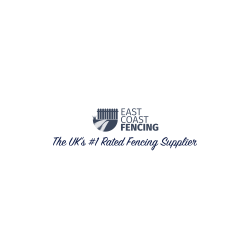How Does Rain Affect Your Fencing and How to Prevent Damage?

Fencing adds both aesthetic appeal and functional value to a property. It provides privacy, security, and can even act as a sound barrier in some cases. However, like any outdoor structure, it is constantly exposed to the elements. Among these, rain can be particularly deleterious, affecting different types of fencing materials in various ways. Understanding how rain impacts your fencing and the proactive steps you can take to minimise damage is crucial for maintaining the longevity and appearance of your fence.
The Impact of Rain on Different Fencing Materials
Wood Fencing
Wood is a popular choice for fencing due to its natural appearance, versatility, and relatively low cost. However, wood is also highly susceptible to water damage. Rain can cause wood fences to warp, rot, and develop mould and mildew. The absorption of water can make the wood expand, which may lead to cracking as the wood dries out.
Metal Fencing
Iron and steel fences can rust when exposed to rain over time. Rust not only affects the appearance of the fence but can also degrade its structural integrity. Aluminium fencing is more resistant to rust; however, it can still suffer from corrosion if not properly maintained.
Vinyl Fencing
Vinyl fencing is generally resilient against rain and moisture, making it a good option for rainy climates. However, extreme weather conditions and standing water can still lead to issues like discoloration, and mould growth on the surface.
Composite Fencing
Composite fencing, made from a mixture of wood fibres and plastic, is designed to mimic the look of wood while offering greater resistance to moisture and decay. However, prolonged exposure to water can still lead to swelling and damage over time.
Preventing Rain Damage to Your Fence
Regular Maintenance and Inspection
Regularly inspect your fence for any signs of damage or wear. Promptly address issues like cracks, holes, or rust spots to prevent water from seeping in and causing further deterioration.
Proper Installation
Ensure that your fence is installed correctly with good drainage in mind. This might involve angling the fence slightly off the ground to prevent water from pooling at the base, which is particularly important for wood and metal fences.
Paint and Sealants
Applying a waterproof sealant to a wood fence can help protect it from water damage. Reapply the sealant every 2-3 years or according to the product’s recommendations. For metal fences, use rust-resistant paint and perform touch-ups as needed to cover any scratches or damage.
Cleaning
Keep your fence clean of debris, dirt, and leaves, which can trap moisture against the material, fostering rot or rust. A gentle wash with soapy water can help keep vinyl and composite fences looking their best and prevent mould growth.
Guttering
Consider installing gutters along the top edge of the fence or nearby structures to redirect rainwater away from the fence, reducing the amount of water it is exposed to.
Conclusion
Fences are a significant investment in the beauty and functionality of your property. While rain and moisture can pose threats to this investment, understanding the specific vulnerabilities of your fence material and taking preventative measures can help mitigate the risk of damage. By performing regular maintenance, applying protective coatings, ensuring correct installation, and keeping the fence clean, you can extend the life of your fencing and preserve its appearance for years to come.















Leave a Comment